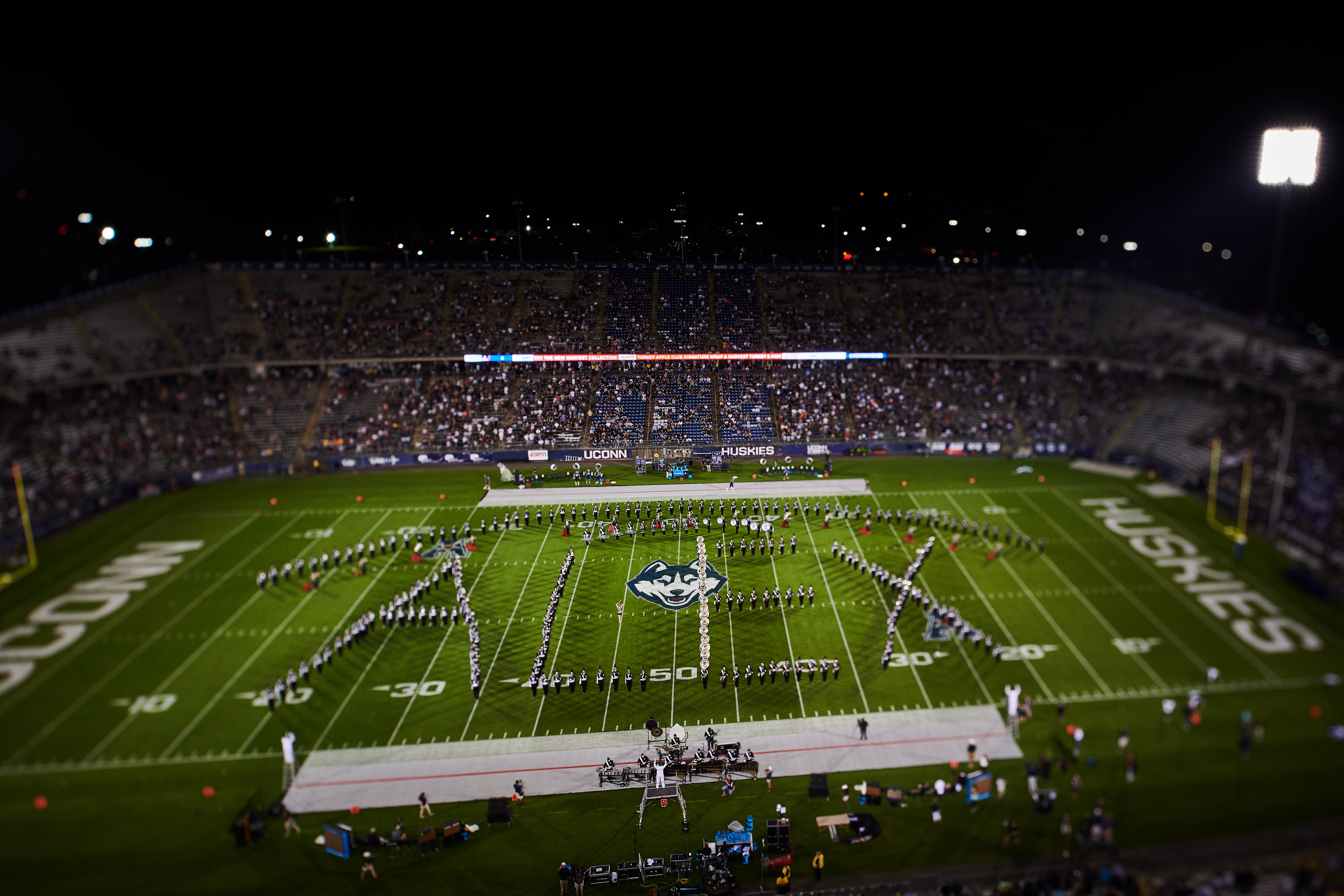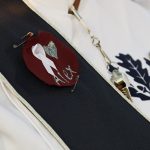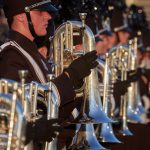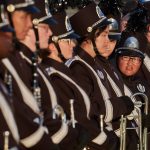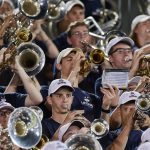Hours before kickoff for UConn’s first football game of the season, Max Schachter already knew what he’d be doing at halftime.
“I’m probably going to be crying,” he said during a visit to the University of Connecticut on Thursday.
Listen to an interview with Max Schachter from the UConn360 podcast:
Schachter came to Storrs as part of UConn’s ongoing commitment to the memory of his 14-year-old son, Alex, who was killed in a shooting at Marjorie Stoneman Douglas High School in Parkland, Florida, in February, along with 13 fellow students and three staff members.
Before the season started, the UConn Marching Band announced it would pay tribute to Alex, a trombone and euphonium player in his school marching band, by performing his favorite song, Chicago’s “25 or 6 to 4,” at halftime.
Although he lived in Florida, Alex was a passionate Husky fan, growing up with a strong attachment to the University both his mother and uncle had attended. Alex’s family would often include visits to campus as part of summer trips to relatives in Connecticut, including one memorable outing where they encountered Ray Allen, the Husky basketball star who went on to a Hall of Fame career in the NBA, getting ice cream at the Dairy Bar.
“Alex and his brother Ryan, their heads almost exploded,” Max said, laughing at the memory. “Their idol was sitting right there in front of them.”
Back home in Florida, Alex displayed his devotion by constantly wearing the same gray and blue UConn sweatshirt, his father said.
“I said to him, ‘Alex, if you wear the same sweatshirt every day, people are going to think I don’t buy you any other clothes,’ and he said, ‘Dad, I don’t care,’” Max recalled.
After the shooting, when word of Alex’s devotion reached UConn, the University sent him a posthumous letter of acceptance, and also named him a member of the marching and pep bands. The band hung a photo of Alex in their practice room, and left an empty chair in the trombone section.
“This was early on, when I was just trying to come to grips with the enormity of the tragedy,” Max said. “It really touched our family, and it was a beautiful gesture of kindness to show they know that Alex loved UConn.”
In May, Schachter and his wife, Caryn DeSacia, started a UConn scholarship in Alex’s memory, intending for it to be awarded every year to a student in the marching band. Schachter said he’s hoping to raise at least $25,000 for the fund, which people can donate to by texting UCMB to #41444 or by visiting http://s.uconn.edu/schachter.
Max is also honoring his son by devoting himself to finding ways to prevent shootings like the one that took Alex’s life. The Safe Schools for Alex campaign is working to develop a set of national best practices for school safety, taking in everything from how classroom doors are made to what types of training are given to teachers and other school personnel.
To this end, Max has met with school safety experts from around the country, and with elected officials ranging from mayors to Vice President Mike Pence. It’s work he never imagined doing, but he said it’s what helps keep him motivated in the face of an unthinkable grief.
“I struggle every day getting out of bed,” he said. “But I know we have not made any progress in 20 years since Columbine. This is my mission, and I will get it done.”
